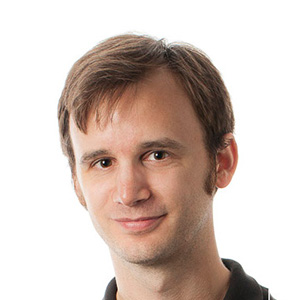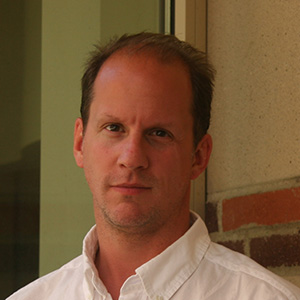Program
Big Data Neurosciences Workshop 2019
http://www.neurosciencenetwork.org/ACNN_Workshop_2019.htmlOrganized by the Advanced Computational Neuroscience Network and supported by the National Science Foundation
| Thursday 09/19/19 | ||
|---|---|---|
| 8:30 - 9:00 a.m. | Weiser Hall | Registration and Light breakfast |
| 9:00 - 9:30 a.m. | Weiser Hall | Welcome and introductory remarks - ACNN Principals and Professor H.V. Jagadish, Director of MIDAS |
| 9:30 - 10:15 a.m. | Weiser Hall | Opening Keynote - Russ Poldrack
Building around standards: The role of BIDS in neuroimaging data sharing |
| 10:15 - 10:30 a.m. | Weiser Hall | Coffee & Networking |
| 10:30 - 11:30 a.m. | Weiser Hall | Panel Discussion - Open Science - John Marcotte
The open science panel will discuss the importance of reproducibility and replicabililty. Topics will include sharing data, results and program code. The panel will address the challenges of big data that are increasingly common in neuroscience research. Panelists: Pamela Davis-Kean, Aina Puce, Jack Van-Horn |
| 11:30 - 1:00 p.m. | Pizza House | Lunch and networking |
| 1:00 - 1:45 p.m. | Weiser Hall | Keynote - Tristan Glatard
Big Data Infrastructures for Neuroinformatics: Performance, Reproducibility, Interoperability |
| 1:45 - 2:45 p.m. | Weiser Hall | Lightning Talks |
| 2:45 - 3:15 p.m. | Weiser Hall | Coffee & Networking (30 min after lightning talks) |
| 3:15 - 4:15 p.m. | Weiser Hall |
Panel Discussion – Neuroscience Initiative at the University of Michigan – Cindy Lustig
The Michigan Neuroimaging Initiative is a "grassroots", multi-disciplinary effort to enhance interaction among investigators, provide key services and support for their research, and build and improve the training and computing infrastructure for neuroimaging research. We'll talk about how the different components came together, what we've been able to accomplish, past and ongoing challenges, and what we hope to continue building into the future. Panelists: Chandra Sripada, Bennet Fauber |
| 4:15 - 5:00 pm | Weiser Hall | Keynote - Jessica Turner
Neuroinformatics and imaging genetics: ENIGMA & COINSTAC |
| 5:00 - 5:15 p.m. | Weiser Hall | Concluding remarks |
| 5:15 - 6:00 p.m. | Weiser Hall | Networking Reception and Poster Session |
| Day 2 Friday 09/20/19 | ||
| 8:15 - 8:45 a.m. | Weiser Hall | Light breakfast |
| 8:45 - 9:15 a.m. | Weiser Hall | Keynote - Jack Van Horn
Data Science: An Introduction to the Computational Tools and Techniques for Large-scale Biomedical Research |
| 9:15 - 10:15 a.m. | Weiser Hall |
Pipeline examples
|
| 10:15 - 11:15 a.m. | Weiser Hall | Panel Discussion – Translational Neuroscience - Rich Gonzalez
Panelists: University of Michigan, Government, Industry Drew Bennett (office of tech transfer), Kurt Thoroughman (NSF Program Director), Derek Edwards (CEO, BehaviorCloud) |
| 11:15 - 11:45 a.m. | Weiser Hall | Coffee & Networking |
| 11:45 - 12:15 | Weiser Hall | Closing Keynote - ACNN team |
Keynote Speakers

Russ Poldrack
Building around standards: The role of BIDS in neuroimaging data sharing
There is increased interest in data sharing, but shared data on their own are not useful unless they follow standard structures that allow them to be easily interpreted and reused. I will discuss the development of the Brain Imaging Data Structure (BIDS), a community effort to describe neuroimaging datasets. I will show how the availability of this standard has enhanced the ability to automatically share and process neuroimaging datasets, focusing on the OpenNeuro and BIDS Apps projects.

Tristan Glatard
Big Data Infrastructures for Neuroinformatics: Performance, Reproducibility, Interoperability
Big Data engines such as Apache Spark, Hadoop or Dask, are now widely adopted in various industry domains, but they remain seldom used in neurosciences while large data volumes are commonly processed. The first part of this talk will explain the reasons for this situation. More precisely, it will review (1) what are the main properties of Big Data engines and how they differ from traditional neuroimaging engines such as Nipype, and (2) in which situations Big Data engines provide a performance advantage to neuroimaging applications. In a second part, the talk will highlight the consequences of using Big Data infrastructures on the reproducibility of neuroimaging results, taking examples from structural and functional MRI analysis. In particular, it will show the effect of minor data and infrastructural perturbations on analysis results. Finally, the presentation will conclude by demonstrating a few technological solutions to allow Big Data platforms to interoperate, in particular the Boutiques framework for pipeline interoperability.

Jessica Turner
Neuroinformatics and imaging genetics: ENIGMA & COINSTAC
Large-scale neuroimaging studies and analysis can be implemented in a number of ways, from a planned multi-site effort in data collection to opportunistic analyses of legacy data. The Enhancing Neuroimaging Genetics through Meta Analysis (ENIGMA) consortium is currently in its 10th year of facilitating large-scale data sharing and analysis techniques to produce analyses of thousands of participants' data, through a combination of surprisingly simple techniques. I will provide an overview of how ENIGMA functions and its methods; as an open consortium, it is relatively easy to get involved. ENIGMA runs into limits in what data shared for aggregated analyses, particularly for genetics; the Collaborative Informatics and Neuroimaging Suite Toolkit for Anonymous Computation (COINSTAC) has been developed as a platform to allow decentralized analyses in a context of privacy protection for sensitive data. I will present some of the examples of COINSTAC's capabilities and how it interacts with ENIGMA and other ad hoc collaborations.

Jack Van Horn
Data Science: An Introduction to the Computational Tools and Techniques for Large-scale Biomedical Research
It has been noted that data science and large-scale analyses have ushered in a wholly new research paradigm. With the onslaught of rich biomedical data types related to the brain form, function, and connectivity, as well as to aspect such as neurological disease and drug abuse, these methods form the basis for several lines of modern neuroscientific examination. In this presentation, I will review the motivations behind data science, several computational tools, and feature examples of where and how it has utility for the ‘big data’ examination of the human brain. Important in this is the education and training of the next generation of biomedical data scientists.
Lightning Talks
Speaker: Marlena Duda
Speaker: Soichi Hayashi
Speaker: Parham Mostame
Speaker:Sepideh Sadaghiani
Speaker:Maria Photiou
Speaker:Karthik Ganeson
Speaker:Leigh Goetschius
Speaker:Mingzhou Fu
Speaker:Balaji Iyer
Speaker:Harshvardhan Gazula
Speaker:Maximillian Egan
Posters
Poster dimensions – 48x72 (Horizontal Layout)
Posters will be on display throughout the conference with a reception and poster session at the end of the first day of the conference, Thursday, September 19, 2019
List of Accepted Posters
-
Poster 1:
Spatial-temporal perturbations in ADAR editing as prognostic and diagnostic biomarkers in neurological disorders
by Noel-Marie Plonski, Caroline Nitirahardjo, Ain Shajihan and Helen Piontkivska -
Poster 2:
Phase coupling and amplitude coupling are two distinct but spatially and temporally associated mechanisms of connectivity; An intracranial EEG study
by Parham Mostame, Abbas Babajani-Feremi and Sepideh Sadaghiani -
Poster 3:
Predicting ICH Patient Outcome from Brain CT Scans Using an Ensemble Deep Learning Framework
by Balaji Iyer, Smruti Deoghare, Samuel Hacker, Vivek Khandwala, David Wang, Daniel Woo, Achala Vagal and Surya Prasath -
Poster 4:
Mosaicking and Blending in Large-scale Neuroimaging for Robust Dendrite Detection
by V. B. Surya Prasath and Bruce Aronow -
Poster 5:
Spatial Updating and Domain Expertise: the case of dancers
by Maria Photiou and Marios Avraamides -
Poster 6:
Making network neuroscience more findable, accessible, interoperable, and reusable via brainlife
by Brent McPherson, Daniel Bullock, Brad Caron, Lindsey Kitchell, Soichi Hayashi, Josh Faskowitz, Olaf Sporns, Richard Betzel, Paolo Avesani and Franco Pestilli -
Poster 7:
Data Quality And Safety Of Simultaneous EEG-fMRI Using Multi-band fMRI Sequences
by Maximillian Egan, Ryan Larsen, Brad Sutton and Sepideh Sadaghiani -
Poster 8:
Characterizing and Understanding Time-varying Functional Connectivity States via Network Science and Deep Neural Networks
by Marlena Duda, Danai Koutra and Chandra Sripada -
Poster 9:
Longitudinal effects of dimensional exposure to violence exposure and social deprivation on adolescent white matter tracts
by Leigh Goetschius, Tyler Hein, Colter Mitchell, Nestor Lopez-Duran, Vonnie McLoyd, Sara McLanahan, Jeanne Brooks-Gunn, Luke Hyde and Christopher Monk -
Poster 10:
Smoking Behavior and Cumulative Genetic Risk for Smoking on Cognitive Status among Older Americans
by Mingzhou Fu, Harita Vadari, Erin Ware and Kelly Bakulski -
Poster 11:
Decentralized analysis of brain imaging data: A status update on COINSTAC
by Harshvardhan Gazula, Bradley Baker, Eswar Damaraju, Sergey Plis, Sandeep Panta, Rogers Silva and Vince Calhoun -
Poster 12:
Building Generalizable cognitive models using ECoG data: An improvised technique for group-level analysis
by Karthik Ganeson, Adriene Beltz and David Brang
Travel Scholarship
Travel Scholarship Awardees:
| Name | Department | University | |
|---|---|---|---|
| 1. | Jessica Butts | Biostatistics | University of Minnesota |
| 2. | Qiuyi Wu | Department of Biostatistics and Computational Biology | University of Rochester |
| 3. | Noel-Marie Plonksi | School of Biomedical Sciences | Kent State University |
| 4. | Debarshi Datta | Psychology | Florida Atlantic Univeristy |
| 5. | Taylor Susa | Psychological Science | Northern Michigan University |
| 6. | Wan-Chi Hsin | Statistics | Boston University |
| 7. | Clare Grall | Department of Communication | Michigan State University |
| 8. | Samreen sher Khan | Mathematics | University Of Texas at Dallas |
| 9. | Maria Photiou | Department of Psychology | University of Cyprus |
| 10. | Sharmistha Guha | Statistics | University of California Santa Cruz |
| 11. | Arun Venkataraman | Physics | University of Rochester |
| 12. | Sophia Vinci-Booher | Psychological & Brain Sciences | Indiana University |
| 13. | Subhajit Chakrabarty | Computer Science | University of Massachusetts Lowell |
| 14. | Kyle Murray | Physics | University of Rochester |
| 15. | Josh Faskowitz | Psychological and Brain Sciences | Indiana University |
| 16. | Adel Ardalan | Zuckerman Institute | Columbia University |
| 17. | Shivam Rastogi | Computer science | Indiana University |
| 18. | parham | psychology | Illinois at Urbana-Champaign |
| 19. | faten alamri | Statistical Sciences & Operations Research | Virginia Commonwealth University |
| 20. | Eddie Stage | Neurology | Indiana University School of Medicine |
| 21. | Yuhua Yu | Psychology | Northwestern University |
| 22. | Will Consagra | Department of Biostatistics and Computational Biology | University of Rochester |
| 23. | Britain Taylor | SICE | Indiana University |
| 24. | Daniele Notarmuzi | School of Informatics, Computing and Engineering | Indiana university |
| 25. | Kade Jentink | Psychology | Colorado State University |
| 26. | Pratim Guha Niyogi | Statistics and Probability | Michigan State University |
| 27. | Martin Robert Cole | Biostatistics and Computational Biology | The University of Rochester |
| 28. | Apoorva Bharthur | Medical Neuroscience | Indiana University |
| 29. | Sam Hacker | Agricultural and Medical Biotechnology | University of Kentucky |
| 30. | Yujie Hui | Computer Science and Engineering | The Ohio State University |
| 31. | Christina Dimitriadou | School of Psychology | University of Birmingham |
| 32. | Balaji Iyer | Computer Science | University of Cincinnati |
| 33. | Brent | Psychological and Brain Sciences | Indiana University |
| 34. | Michael Granovetter | Psychology, Center for the Neural Basis of Cognition, and Medicine | Carnegie Mellon University and University of Pittsburgh |
| 35. | Shira Cohen-Zimerman | Cognitive Neuroscience | Shirley Ryan AbilityLab (Northwestern University) |
| 36. | Anne Margarette Maallo | Psychology | Carnegie Mellon University |
| 37. | Kawthar Abdulkabir | Student; Data Science Major | University of Michigan Dearborn |
| 38. | Jorge Martinez | Physics | University of Notre Dame |
| 39. | Josiah Leong | Psychological and Brain Sciences | Indiana University Bloomington |
| 40. | Farnaz Zamani Esfahlani | Psychological and Brain Sciences | Indiana University |
| 41. | Augustin Hennings | Institute for Neuroscience | University of Texas at Aust |
| 42. | Alexei Taylor | Psychology | Drexel University |
| 43. | Harshvardhan Gazula | Center for Translational Research in Neuroimaging and Data Science | Georgia State University |
| 44. | Smruti Deoghare | Biomedical Informatics | University of Cincinnati |
| 45. | Qiong Wu | Department of Mathematics | University of Maryland |
| 46. | Maximillian Egan | Psychology | University of Illinois at Urbana-Champaign |
| 47. | Sara Motlaghian | Mathematics and Statistics | Georgia State University |
| 48. | Eliezyer de Oliveira | Dominick P. Purpura Department of Neuroscience | Albert Einstein College of Medicine |
| 49. | Jo Youngheun | Psychological and Brain Sciences | Indiana University - Bloomington |
Sharable Resources
A web form is available to submit items for inclusion in the sharable resources. Examples (not an exclusive list) of appropriate resources that may be suggested includes:
- Highly scalable APIs
- Relevant publications
- Cloud-services
- Computational Resources
- Algorithms, methods, techniques
- Education and Training Opportunities
Registration
In order to plan for your arrival, we encourage you to register early.Approximate Registration Fees
| Faculty | $60.00 |
| Academic Staff | $60.00 |
| Industry Staff | $60.00 |
| Post Doc | $40.00 |
| Graduate Student | $25.00 |
| Undergraduate | $25.00 |
Registration Fees include
- All workshop materials
- Attendance at sessions
- Continental breakfast (Thursday, September 19 and Friday, September 20)
- Lunch (Thursday, September 19)
- Morning and afternoon beverage breaks
Registration Check-in
| Time: | beginning at 7:30 a.m. on Thursday, September 19 |
| Location: |
Weiser Hall 500 Church Street, 10th Floor Conference Space Ann Arbor, MI 48104 |
Cancellation of Registration
A refund, less a $10.00 administrative charge, will be accepted if received by midnight Thursday, August 1st. Refund requests must be received in writing by no later than August 1, 2019. Cancellation requests should be sent by email to conferences@umich.edu. Cancellation requests cannot be made by phone.
Questions?
If you have questions about how to register or how to cancel your registration, contact the Conference Registrar, Jeannette Jackson.